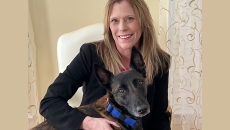Bill Siwicki
That's just one of the findings from new Accenture research showing how the algorithms behind apps like ChatGPT could fundamentally transform healthcare processes and clinical workflows.
Also through its Virtual Care at Home program, Augusta has been able to show a reduced readmission rate of 7.4%.
As the PHE ends this week, Christopher Johnson, president and co-CEO of TeleTracking, which worked with HHS on data collection during the pandemic, offers his views on the transition – and discusses some potential lasting changes to healthcare.
Many experts say a combination of in-person care with telehealth is the future of telemedicine. FirstHealth of the Carolinas shows how it's done.
"The more efficient we are and the faster we turn around the equipment, the more equipment is available for the patient, which decreases length of stay and increases patient satisfaction," says its system director of clinical engineering.
By improving use of its data, the behavioral health agency has been able to help patients obtain employment and GEDs – all while connecting seamlessly to its health information exchange to drive improved care coordination.
What's more, data work surrounding the early warning system helped spur physician use of evidence-based order sets to greater than 70% – which greatly reduces overall mortality.
The Agency for Healthcare Research and Quality is recruiting providers to participate in a new effort to ensure safety when diagnosing cancer via virtual care. The results will also help shape approaches to other diseases.
The firm's global health leader speaks with Healthcare IT News about hybrid care, digital transformation, big data, generative AI and smart technology.
"We are at a tipping point where technology can help disrupt what used to only occur within doctors' offices and enable people to get access to affordable and accessible guidance," says the health system's chief digital engagement officer.










